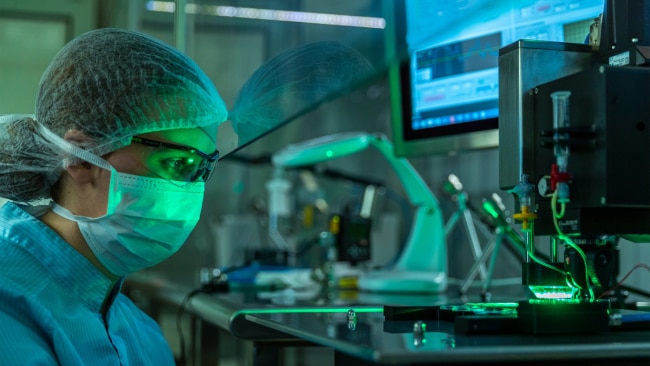The knees have it
RESEARCH is suggesting the shape of our joints determines whether we are likely to develop debilitating osteoarthritis.

GOOD week for ... people with narrow knees, after research suggesting the shape of our joints determines whether we are likely to develop debilitating osteoarthritis.
Variations in knee shape influence the joint's biomechanical behaviour and, therefore, could predispose to osteoarthritis, the authors say online in the journal Arthritis and Rheumatism. They looked at X-rays of 1218 knees belonging to women with and without osteoarthritis. People with relatively wide femurs and tibias were significantly morelikely than others to have osteoarthritis.
Arthritis Rheum
2011;doi:10.1002/art.30575 (Haverkamp D et al)
Bad week for ...
WOMEN with abnormal cervical smears: treatments for the problems identified put them at greater risk of pre-term birth, research shows. When cervical smears find pre-cancerous changes in the cervix, some of the treatments destroy the abnormal area (ablative therapy) while others remove the abnormal area (excisional therapy). This research in the obstetrics journal BJOG reviews a number of studies of pregnancy outcomes after such therapy. Women who had excisional therapy were about twice as likely as others to have a pre-term birth (delivery before 37 weeks). Those who had ablative therapy had only a slightly increased risk.
BJOG
2011;118:1031-1041 (Bruinsma F et al)
And ...
CHILDREN who suffer a head injury, after research showing they are predisposed to become violent young adults. The study online in the journal Pediatrics followed 850 children for eight years from mid-adolescence. Kids who had suffered a head injury were more likely to be violent than others.
Pediatrics
2011;doi:10.1542/peds.2010-2453 (Stoddard S et al)
Best debunk
SOY isoflavones, touted as natural alternatives to hormone replacement therapy, do not prevent bone loss or ease menopausal symptoms, according to new research. Concerns about HRT risks had led to more menopausal women using soy products, the researchers say in the Archives of Internal Medicine. Their study involved women aged 45-60 who took either daily soy isoflavone tablets (200mg) or placebos. After two years, there were no significant differences in bone density between the two groups. although more women in the soy group had hot flushes and constipation.
Arch Intern Med
2011;171:1363-1369 (Levis S et al)
Nutrition bite
PREGNANT women who take supplements of the long-chain polyunsaturated fatty acid docosahexaenoic acid (DHA) may be protecting their babies from colds, research suggests. Fatty acids influence immune function and inflammation, the researchers say online in Pediatrics. Their study involved women who took either 400mg of DHA daily or a placebo from mid-pregnancy onwards. DHA supplements were linked to fewer colds in one-month-old babies.
Pediatrics
2011;doi:10.1542/peds.2010-1386 (Imhoff-Kunsch B et al)
Adam Taor is a medically-qualified writer.
Want to know more? Items are referenced where possible. A reference such as "2007;35:18-25" means the source article was published on pages 18-25 in volume No 35 of the publication, in 2007. A doi number or website address is used for research published on a journal's website.


